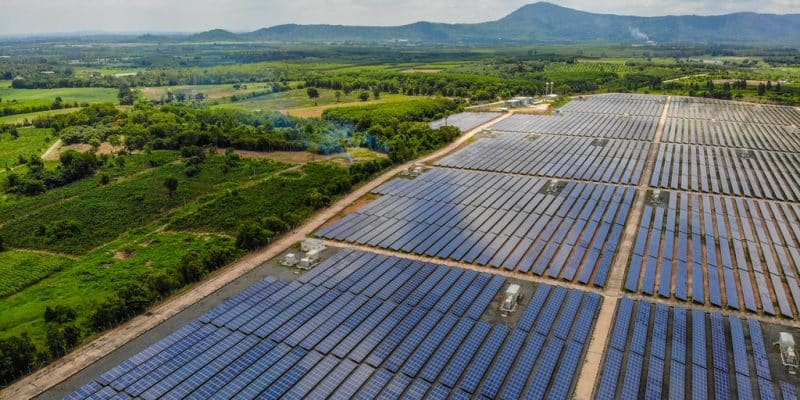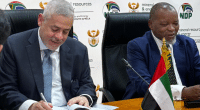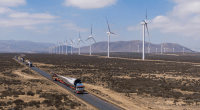UAE-based independent power producer (IPP) Amea Power has signed a power purchase agreement (PPA) with Électricité de Djibouti (EDD) for a 25 MW solar power plant. The plant will be located in the Grand Bara region.
The Grand Bara solar project has finally been unearthed. This is thanks to Amea Power, which has just signed a power purchase agreement (PPA) with Électricité de Djibouti (EDD) for this 25 MW photovoltaic solar power plant. The plant will be equipped with a battery storage system to guarantee the supply of electricity a few hours after sunset or in bad weather.
The plant will produce an estimated 55 GWh per year. The electricity will be sold to the public utility EDD for 25 years. “Amea Power is proud to take this step and to support Djibouti in its energy transition. East Africa is an important market for Amea Power, as it is a region with immense potential for the development of clean, reliable and affordable energy,” says Hussain Al Nowais, Chairman of Amea Power, who signed the PPA with Djama Ali Guelleh, Managing Director of EDD.
Electricity for 66,500 people
According to Hussain Al Nowais, the solar power plant will be capable of supplying 66,500 people, and should contribute to the Djibouti government’s strategy of reducing its carbon dioxide (CO2) emissions by 40% by 2030. According to Power Africa, Djibouti has an installed capacity of 126 MW generated entirely from fossil fuels. Amea will build the plant under a public-private partnership (PPP).
Read also- DJIBOUTI: Australia’s CWP wants to convert 10 GW of clean electricity into hydrogen
The independent power producer (IPP) based in Dubai in the United Arab Emirates will be joined by the Sovereign Wealth Fund of Djibouti (SDF) “before financial close as a minority shareholder”, according to Amea Power, which will thus contribute to the relaunch of the Grand Bara solar complex project. A few years ago, the Djibouti government was counting on an installed capacity of 300 MW for an investment of 360 million euros.
A country dependent on the outside world
In 2019, Engie signed a framework agreement for 30 MW. According to Africa Intelligence, the French company subsequently walked away from the project. Be that as it may, Grand Bara and many other clean energy projects currently being developed in this country in the Horn of Africa aim to meet the growing demand for electricity. According to Djibouti’s Minister of Energy and Natural Resources, Yonis Ali Guedi, household demand for electricity is increasing by 10% every year.
Pending the completion of projects that have been slow to materialise, Djibouti imports electricity from Ethiopia via a 283 km high-voltage line linking Dire Dawa to Djibouti city, injecting 95 MW into the country’s electricity grid. This represents 65% of the electricity consumed in Djibouti, according to Minister Yonis Ali Guedi. Ethiopia, which is preparing to become the energy powerhouse of the Horn of Africa thanks to its Renaissance Dam (6,450 MW), will inject a further 60 MW into the Djibouti grid thanks to a new 190 km high-voltage line currently under construction.
Jean Marie Takouleu






